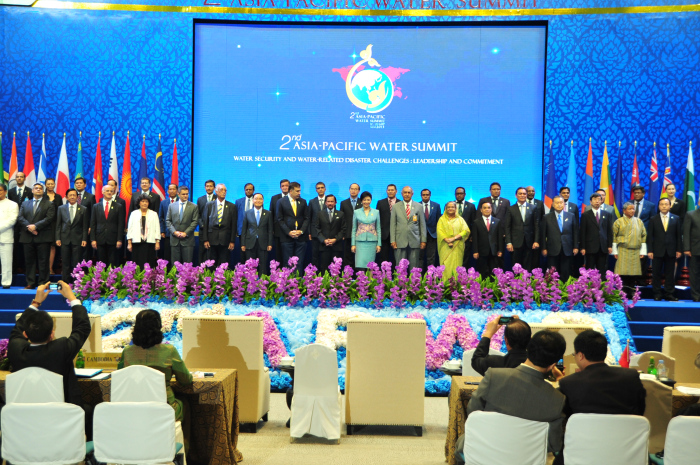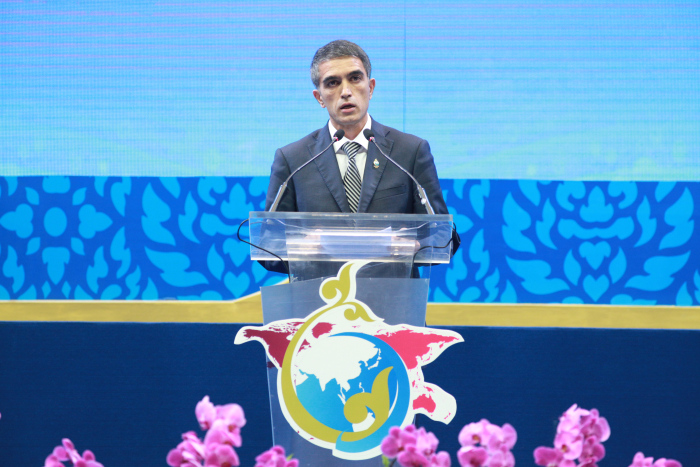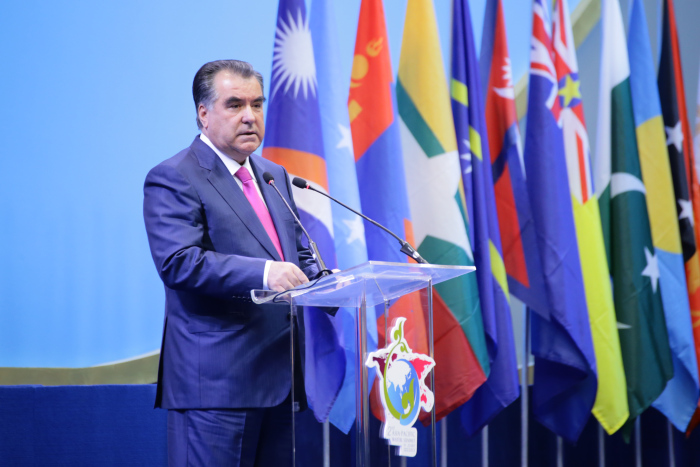The Summit consisted of: a high-level plenary and focus area discussions on 19 May and a ministerial-level Leaders’ Forum on 20 May. It was preceded by an exhibition and poster session from 14-20 May focusing on research, policy, and innovation in the areas of water security and water-related disasters, and technical workshops from 16-18 May. Around 300 delegates from government agencies, international organizations, academia, non-government organizations and the private sector attended the Summit. Ten heads of state and government attended the Leaders’ Forum, from Bangladesh, Brunei, Fiji, Georgia, Republic of Korea, Lao Peoples Democratic Republic, Niue, Tajikistan, Thailand and Vanuatu, as well as ministers (including from Uzbekistan) and high-level delegates from many countries.

In his keynote address (read in English and in Russian), Emomalii Rahmon, President, Tajikistan, welcomed participants, highlighting the international foundation of support and interest to address water security based on the Rio+20 outcome and the 2013 International Year of Water Cooperation, linking water quality, availability and integrated management as central to achieving all other sustainable development goals (SDGs). Rahmon indicated the critical role of cooperation to address water security challenges and maintain peace, outlining a global water vision to implement goals and promote water security.
Shavkat Khamraev, Deputy Minister for Agriculture and Water Management, Republic of Uzbekistan, listed challenges impacting water availability, such as climate-induced loss of glacial reserves and pressures from increased economic development. He voiced concern over the construction of hydropower plants with gigantic dams in transboundary river zones, calling for the use of alternative sources of energy, safer construction, and feasibility analyses of impacts to the environment.
During the Summit, participants discussed issues of water resources management in relation to food security, human well being, and disaster risk reduction, with many countries delivering policy statements and sharing their experiences and national actions towards water security.
The Summit produced an outcome document, the Chiang Mai Declaration (read in English and in Russian). The Chiang Mai Declaration acknowledges and reiterates the importance of water for human security, environment, and economy by outlining specific recommendations such as, inter alia: prioritizing water and sanitation and integrated water resource management (IWRM) in national agendas; including disaster risk reduction and water issues in the post-2015 agenda; enhancing regional and international cooperation; and improving efficiencies in the agricultural sector. The Chiang Mai Declaration invites the APWF to mobilize initiatives to support the recommendations and consider establishing an Asian Water Information System.

Mr. Shavkat Hamraev, Deputy Minister for Agriculture and Water Resources of Uzbekistan

Emomali Rahmon, President of the Republic of Tajikistan